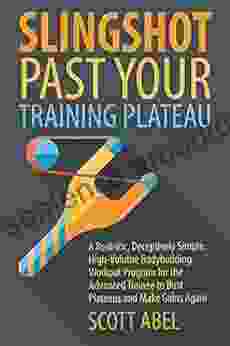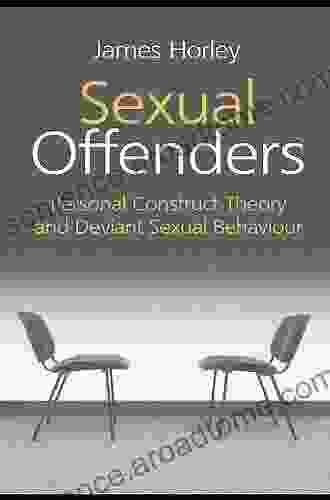Personal Construct Theory: Unraveling the Enigma of Deviant Sexual Behavior

In the tapestry of human sexuality, there exists a realm where societal norms and taboos blur, where the pursuit of pleasure transgresses the boundaries of what is deemed socially acceptable. This realm is the realm of deviant sexual behavior.
5 out of 5
| Language | : | English |
| File size | : | 741 KB |
| Text-to-Speech | : | Enabled |
| Enhanced typesetting | : | Enabled |
| Word Wise | : | Enabled |
| Print length | : | 154 pages |
| Screen Reader | : | Supported |
Fascinating and often misunderstood, deviant sexual behavior has long captivated the interest of psychologists, sociologists, and criminologists. While countless theories have attempted to elucidate the origins and motivations behind such behaviors, one theory stands out for its unique approach: Personal Construct Theory (PCT).
The Essence of Personal Construct Theory
PCT, developed by psychologist George Kelly, posits that individuals construct their own unique understanding of the world based on their experiences and interactions with others. This understanding, known as a personal construct system, consists of a set of interconnected concepts and beliefs that individuals use to make sense of the world around them.
According to PCT, deviant sexual behavior can be understood as a result of an individual's unique personal construct system. These individuals may hold beliefs and expectations about sexuality that differ significantly from societal norms. As a result, they may engage in behaviors that are considered deviant by society but are consistent with their own personal constructs.
Exploring the Psychological Landscape of Deviant Sexual Behavior
PCT provides a rich theoretical framework for understanding the psychological complexities underlying deviant sexual behavior. By examining the personal construct systems of individuals who engage in such behaviors, researchers have gained valuable insights into their:
- Motivations: Deviant sexual behaviors are often driven by specific psychological needs or desires. These may include seeking pleasure, expressing individuality, coping with trauma, or fulfilling power fantasies.
- Perceptions of Normality: Individuals who engage in deviant sexual behaviors may have different perceptions of what is considered normal or acceptable behavior. They may reject societal norms and adopt alternative values and beliefs.
- Self-Concepts: Deviant sexual behaviors can impact an individual's self-concept. They may perceive themselves as being deviant or different from others, which can lead to feelings of shame, isolation, or stigma.
- Social Interactions: Deviant sexual behaviors can have a profound impact on an individual's social interactions. They may face judgment, rejection, or even ostracism from others.
Case Studies: Illuminating the Lived Experiences
To illustrate the application of PCT to the study of deviant sexual behavior, consider the following case studies:
Case Study 1:
A 35-year-old male engaged in consensual sadomasochistic practices. He reported finding pleasure in the physical and emotional pain inflicted during these activities. His personal construct system revealed a belief that pain and pleasure were inextricably linked. He also held a strong desire for control and dominance.
Case Study 2:
A 20-year-old female identified as a transgender person. She engaged in cross-dressing and sex work to express her gender identity. Her personal construct system reflected a belief that her true self was expressed through her gender expression, regardless of social expectations.
These case studies highlight the diversity of motivations, perceptions, and experiences that can contribute to deviant sexual behavior. PCT provides a framework for understanding how individuals' unique personal constructs shape their sexual behaviors, experiences, and identities.
Implications for Treatment and Intervention
PCT has important implications for the treatment and intervention of individuals engaging in deviant sexual behavior. By understanding the psychological underpinnings of these behaviors, therapists can tailor interventions to the unique needs of each individual.
Treatment approaches based on PCT may involve:
- Cognitive Restructuring: Helping individuals challenge and modify their distorted or negative beliefs about sexuality.
- Skill Training: Teaching individuals coping skills to manage their impulses and develop healthier sexual behaviors.
- Social Support: Providing individuals with a supportive environment where they can share their experiences and receive validation.
Personal Construct Theory offers a compelling perspective on the complexities of deviant sexual behavior. By exploring the unique personal construct systems of individuals who engage in such behaviors, researchers and clinicians can gain valuable insights into their motivations, perceptions, and experiences.
PCT provides a valuable framework for understanding the psychological underpinnings of deviant sexual behavior and for developing effective treatment and intervention strategies. By embracing the complexities of human sexuality and recognizing the diversity of individual experiences, we can foster greater acceptance, understanding, and support for those who engage in non-normative sexual practices.
5 out of 5
| Language | : | English |
| File size | : | 741 KB |
| Text-to-Speech | : | Enabled |
| Enhanced typesetting | : | Enabled |
| Word Wise | : | Enabled |
| Print length | : | 154 pages |
| Screen Reader | : | Supported |
Do you want to contribute by writing guest posts on this blog?
Please contact us and send us a resume of previous articles that you have written.
 Book
Book Novel
Novel Page
Page Chapter
Chapter Text
Text Story
Story Genre
Genre Reader
Reader Library
Library Paperback
Paperback E-book
E-book Magazine
Magazine Newspaper
Newspaper Paragraph
Paragraph Sentence
Sentence Bookmark
Bookmark Shelf
Shelf Glossary
Glossary Bibliography
Bibliography Foreword
Foreword Preface
Preface Synopsis
Synopsis Annotation
Annotation Footnote
Footnote Manuscript
Manuscript Scroll
Scroll Codex
Codex Tome
Tome Bestseller
Bestseller Classics
Classics Library card
Library card Narrative
Narrative Biography
Biography Autobiography
Autobiography Memoir
Memoir Reference
Reference Encyclopedia
Encyclopedia Jasjit S Suri
Jasjit S Suri Paul Oliver
Paul Oliver Nancy J Cavanaugh
Nancy J Cavanaugh Nia Shanks
Nia Shanks Matt Mayfield
Matt Mayfield Jason Kelly
Jason Kelly Jeffrey Erickson
Jeffrey Erickson Jean Pierre Filiu
Jean Pierre Filiu Pamela Kaye Tracy
Pamela Kaye Tracy Richard H Thaler
Richard H Thaler Jen Mann
Jen Mann James D Hornfischer
James D Hornfischer Sherry Kinkoph Gunter
Sherry Kinkoph Gunter Jeanette Hagen Pifer
Jeanette Hagen Pifer Jeff Brown
Jeff Brown James F Brennan
James F Brennan Jana Riley
Jana Riley Jean P
Jean P Yoshitsugu Sawai
Yoshitsugu Sawai Jeffery Kirkendall
Jeffery Kirkendall
Light bulbAdvertise smarter! Our strategic ad space ensures maximum exposure. Reserve your spot today!

 Brady MitchellUnveiling the Truth: Why Belief in the Resurrection and the Supernatural is...
Brady MitchellUnveiling the Truth: Why Belief in the Resurrection and the Supernatural is...
 Caleb LongCreate 100 Pure and Beautiful Soaps with "Create 100 Pure And Beautiful Soaps...
Caleb LongCreate 100 Pure and Beautiful Soaps with "Create 100 Pure And Beautiful Soaps... Duane KellyFollow ·19.4k
Duane KellyFollow ·19.4k Jason ReedFollow ·5.5k
Jason ReedFollow ·5.5k Willie BlairFollow ·3.4k
Willie BlairFollow ·3.4k Dashawn HayesFollow ·4.5k
Dashawn HayesFollow ·4.5k Charlie ScottFollow ·13.4k
Charlie ScottFollow ·13.4k Marvin HayesFollow ·12.7k
Marvin HayesFollow ·12.7k Denzel HayesFollow ·11.7k
Denzel HayesFollow ·11.7k Duncan CoxFollow ·4.4k
Duncan CoxFollow ·4.4k

 Davion Powell
Davion PowellUnlock Your Muscular Potential: Discover the...
Are you tired of bodybuilding programs...

 Enrique Blair
Enrique BlairDominate the Pool: Conquer Performance with the DS...
As a swimmer, you...

 Christopher Woods
Christopher Woods"The Physics of Getting Out of Your Own Way": A Journey...
Break Free from...

 Milan Kundera
Milan KunderaWhat Really Sank The Titanic: New Forensic Discoveries
The sinking of the RMS...

 Ralph Waldo Emerson
Ralph Waldo EmersonUnveiling the Truth: Exposing the Hidden Dangers of Lyme...
In the realm of chronic illnesses, Lyme...
5 out of 5
| Language | : | English |
| File size | : | 741 KB |
| Text-to-Speech | : | Enabled |
| Enhanced typesetting | : | Enabled |
| Word Wise | : | Enabled |
| Print length | : | 154 pages |
| Screen Reader | : | Supported |










